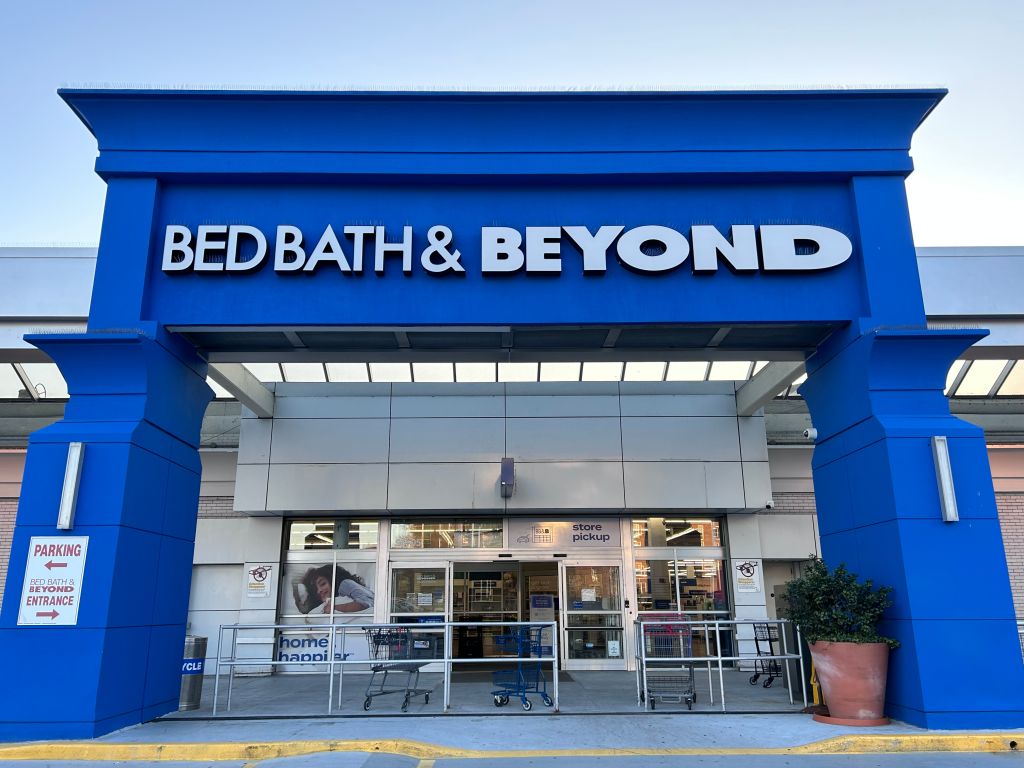Bed Bath & Beyond files for bankruptcy


A free daily email with the biggest news stories of the day – and the best features from TheWeek.com
You are now subscribed
Your newsletter sign-up was successful
It's the end of the line for one of America's most iconic retailers.
Bed Bath & Beyond announced Sunday that it was filing for Chapter 11 bankruptcy, and would begin the process of closing its 360 remaining stores. The company's website displayed a banner saying that it had "made the difficult decision to begin winding down operations."
While Bed Bath & Beyond locations will remain open during this process, along with its 120 locations of infant clothier Buy Buy Baby, storewide sales are slated to begin this coming Wednesday as the company begins liquidating its inventory.
The Week
Escape your echo chamber. Get the facts behind the news, plus analysis from multiple perspectives.

Sign up for The Week's Free Newsletters
From our morning news briefing to a weekly Good News Newsletter, get the best of The Week delivered directly to your inbox.
From our morning news briefing to a weekly Good News Newsletter, get the best of The Week delivered directly to your inbox.
In a press release, Bed Bath & Beyond President & CEO Sue Gove said she deeply appreciates "our associates, customers, partners, and the communities we serve, and we remain steadfastly determined to serve them throughout this process. We will continue working diligently to maximize value for the benefit of all stakeholders." Grove added that the company intends to continue paying employee wages and benefits throughout the bankruptcy proceedings.
Bed Bath & Beyond's Chapter 11 filing marks a historic ending for a 52-year-old company that helped defined the 1990s and 2000s retail landscape. The brand was considered one of the tentpoles of the retail "category killers," CNN noted — companies like Toys "R" Us, Circuit City, and Sports Authority that held near-monopolies over their product categories. All three of these chains also eventually went bankrupt, though, as mass-market retailers were unable to keep up with the online shopping boom from sites like Amazon.
The brand has been teetering on the edge for a while, with the recent economic downturn spelling out the last of its problems. By November 2022, the company held $4.4 billion in assets but $5.2 billion in debts, CNBC reported, and rumors that they would file for bankruptcy first began swirling this past January.
A free daily email with the biggest news stories of the day – and the best features from TheWeek.com
Justin Klawans has worked as a staff writer at The Week since 2022. He began his career covering local news before joining Newsweek as a breaking news reporter, where he wrote about politics, national and global affairs, business, crime, sports, film, television and other news. Justin has also freelanced for outlets including Collider and United Press International.
-
 6 of the world’s most accessible destinations
6 of the world’s most accessible destinationsThe Week Recommends Experience all of Berlin, Singapore and Sydney
-
 How the FCC’s ‘equal time’ rule works
How the FCC’s ‘equal time’ rule worksIn the Spotlight The law is at the heart of the Colbert-CBS conflict
-
 What is the endgame in the DHS shutdown?
What is the endgame in the DHS shutdown?Today’s Big Question Democrats want to rein in ICE’s immigration crackdown
-
 Buffett: The end of a golden era for Berkshire Hathaway
Buffett: The end of a golden era for Berkshire HathawayFeature After 60 years, the Oracle of Omaha retires
-
 Tariffs have American whiskey distillers on the rocks
Tariffs have American whiskey distillers on the rocksIn the Spotlight Jim Beam is the latest brand to feel the pain
-
 TikTok secures deal to remain in US
TikTok secures deal to remain in USSpeed Read ByteDance will form a US version of the popular video-sharing platform
-
 SiriusXM hopes a new Howard Stern deal can turn its fortunes around
SiriusXM hopes a new Howard Stern deal can turn its fortunes aroundThe Explainer The company has been steadily losing subscribers
-
 Unemployment rate ticks up amid fall job losses
Unemployment rate ticks up amid fall job lossesSpeed Read Data released by the Commerce Department indicates ‘one of the weakest American labor markets in years’
-
 How will the Warner Bros. bidding war affect the entertainment industry?
How will the Warner Bros. bidding war affect the entertainment industry?Today’s Big Question Both Netflix and Paramount are trying to purchase the company
-
 Texas is trying to become America’s next financial hub
Texas is trying to become America’s next financial hubIn the Spotlight The Lone Star State could soon have three major stock exchanges
-
 US mints final penny after 232-year run
US mints final penny after 232-year runSpeed Read Production of the one-cent coin has ended
